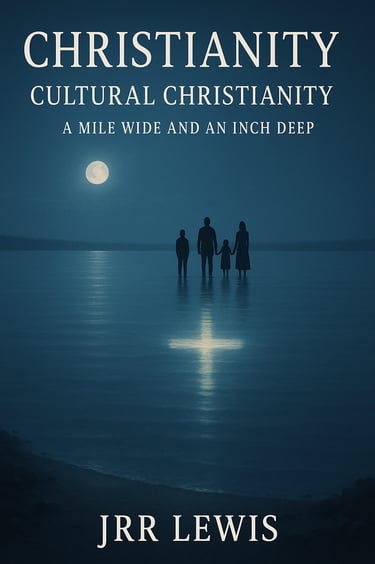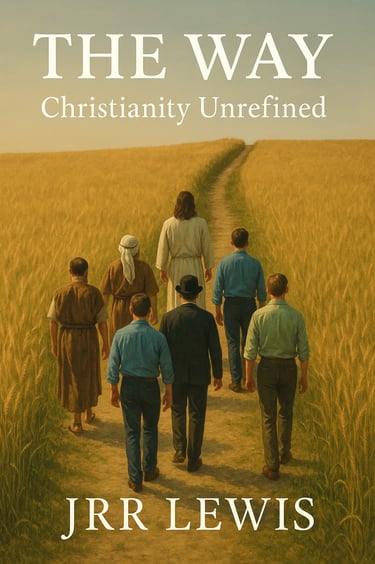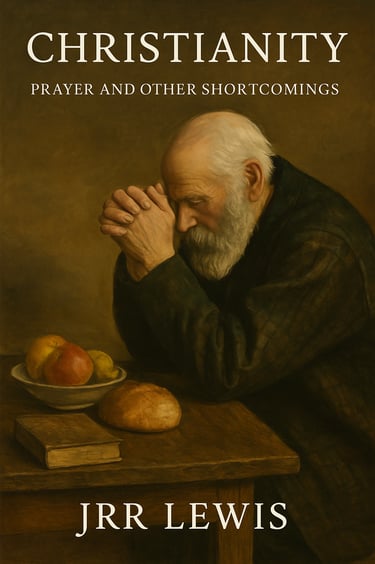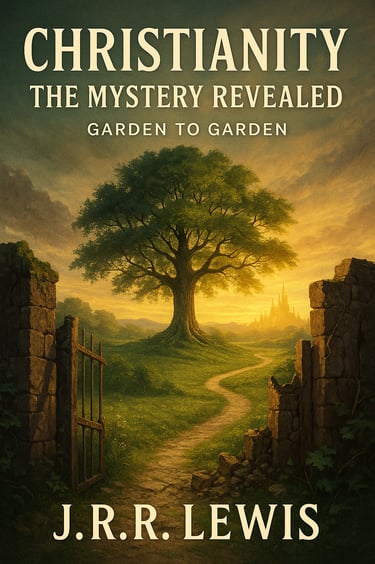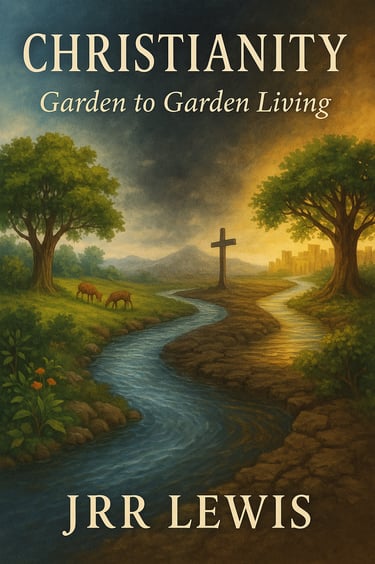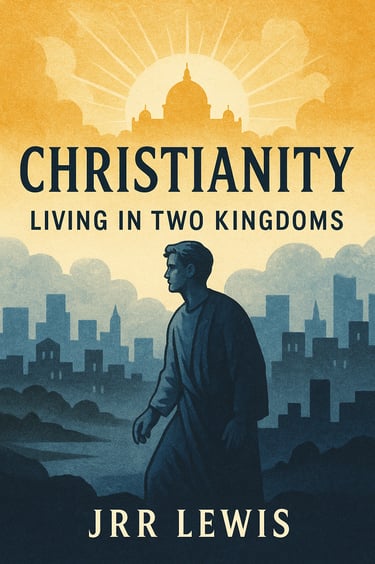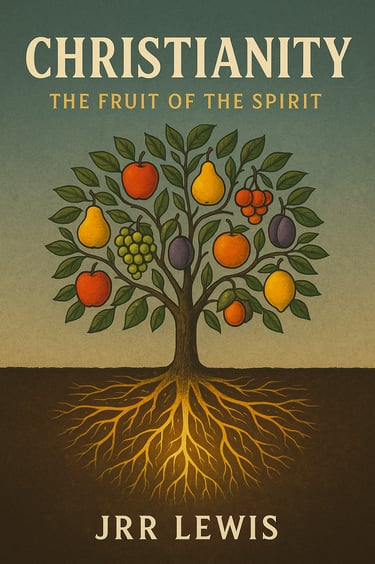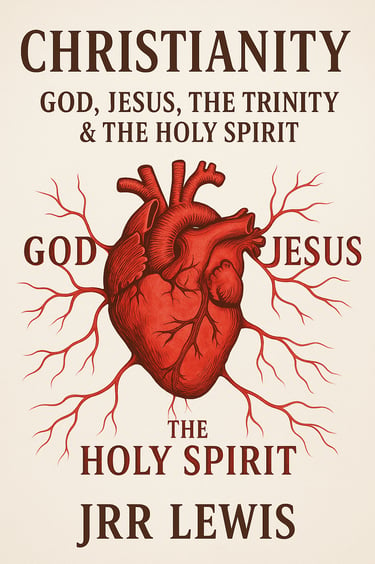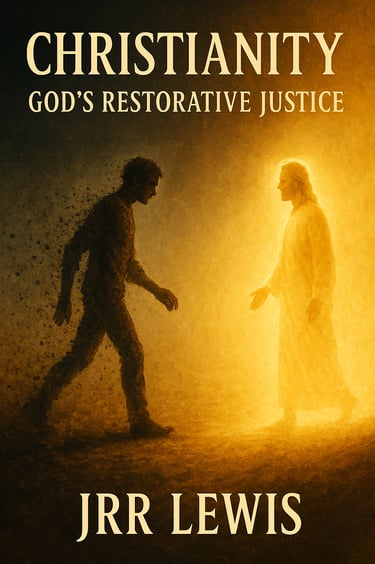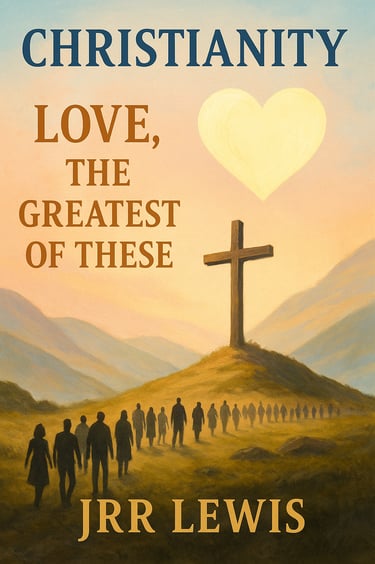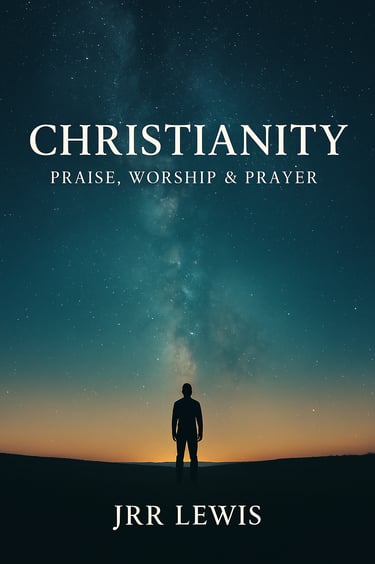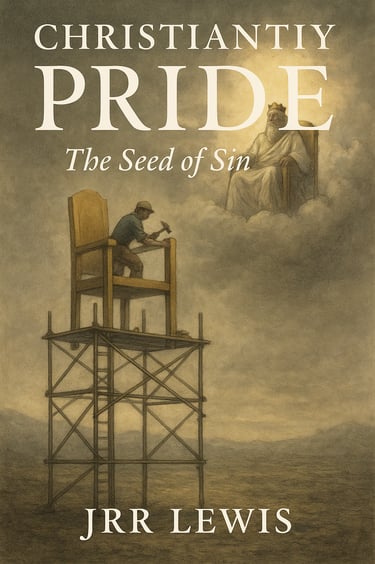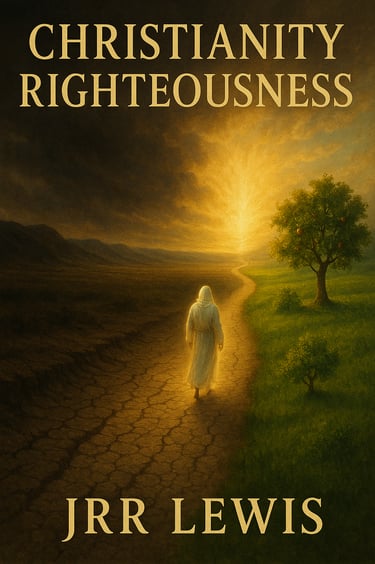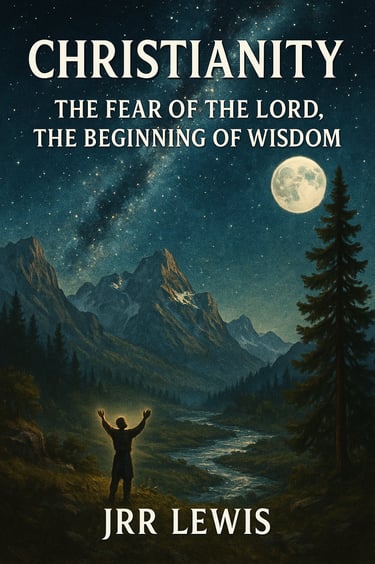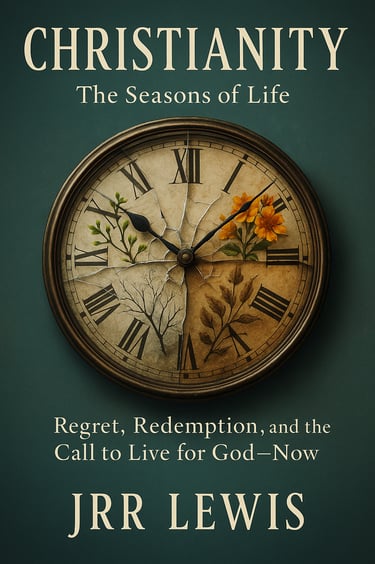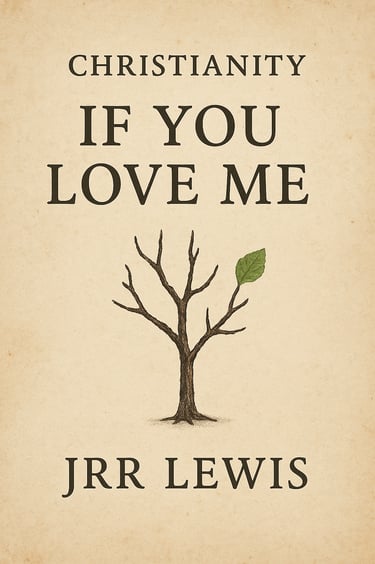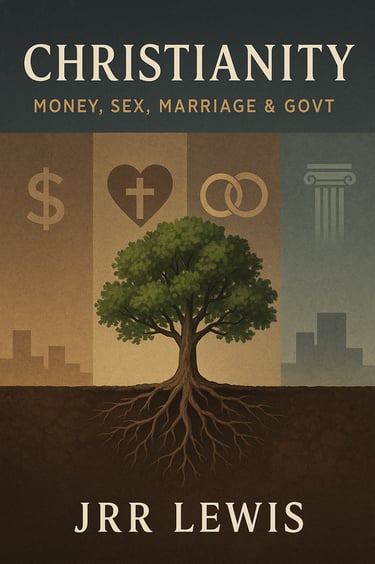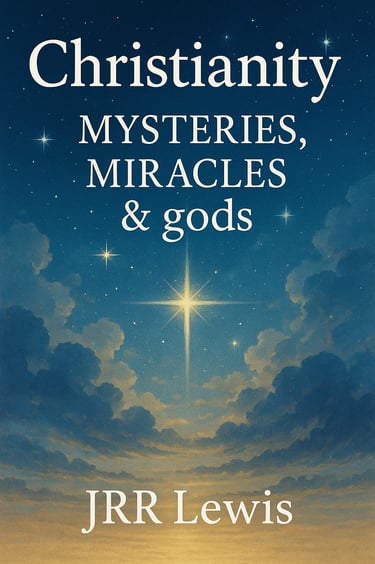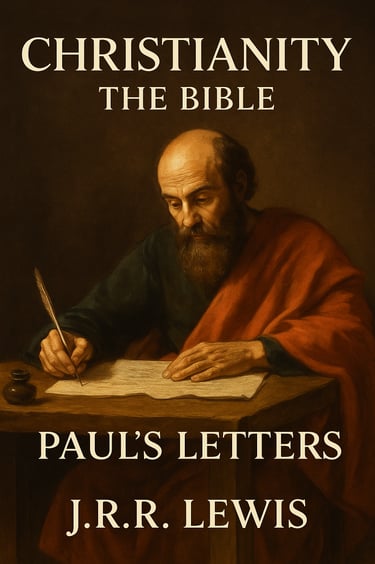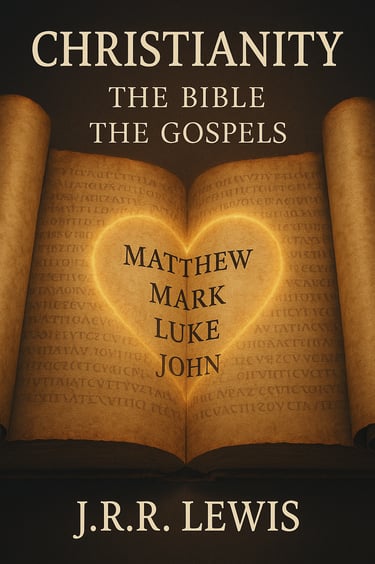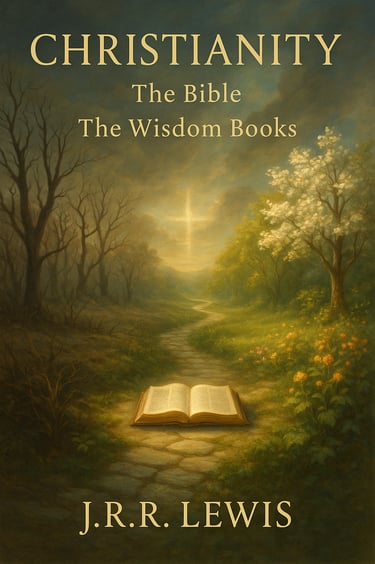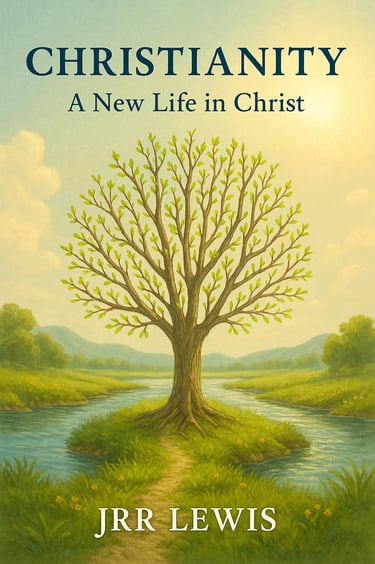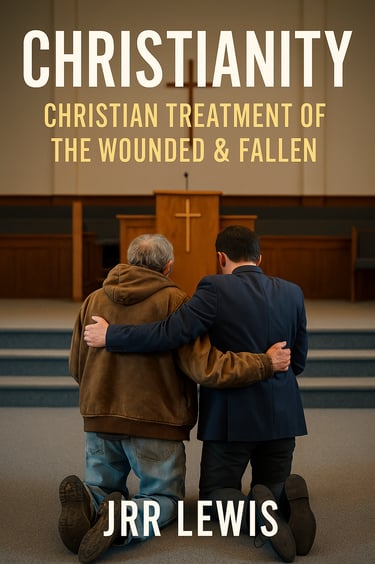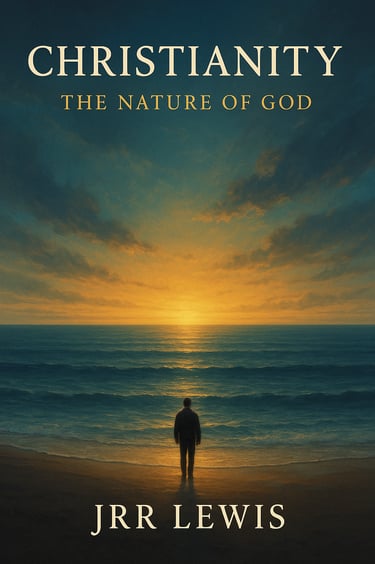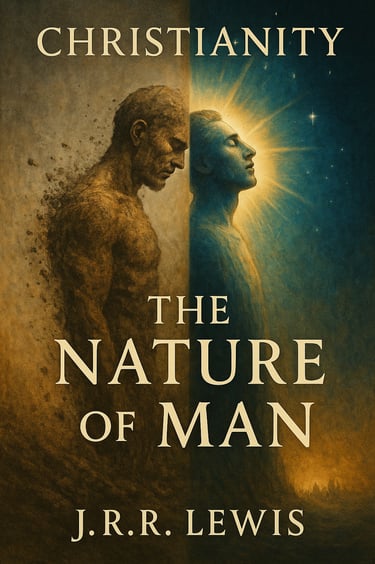Cultural Christianity, A Mile Wide & An Inch Deep is not a new phenomenon—but its consequences have become more urgent than ever. Across the world, and especially in the West, millions claim the name of Christ while remaining untouched by His call to follow. This book explores the subtle danger of a faith that is inherited but not lived, professed but not practiced, familiar but not transformative.
What does it really mean to be a Christian? Is belief enough? What about obedience, fruit, and growth? Why do so many believers still require spiritual milk even after decades in church? And what about those who seem to live comfortably in shallow waters—never fully turning from the world, never fully surrendering to Christ?
Finding God’s Rhythm in a Processed World
Before it was a religion, it was a way of life.
The earliest followers of Jesus didn’t call themselves Christians—they followed The Way. It wasn’t a title. It was a path. A radical, daily walk that shaped everything: how they prayed, how they worked, how they rested, ate, forgave, trusted, and suffered. Their lives looked different—not because of rules, but because of rhythm. They lived simply, walked slowly, worshiped honestly, and trusted deeply.
Prayer is the most accessible act in the Christian life — and yet the one we often neglect. It requires no special location, no degree, no financial cost, and yet it is the first to go when life gets crowded. Many believers know they should pray, but few experience prayer as a constant, living connection with the God who made them.
This book is a call back to the heart of prayer — not as a ritual or last resort, but as the lifeline of the believer. It begins with the wonder that prayer is conversation with the Creator of the universe. The One who spoke galaxies into being listens to our words, whispers back through His Spirit, and invites us into a relationship deeper than we imagined.
What the Bible Was Always Telling Us
This book explores the full arc of Scripture—from the garden of Eden to the New Jerusalem—showing how the Bible reveals one consistent story of God’s pursuit, justice, and restoration. Written in short, poetic chapters, it unpacks the core truths of the Christian faith through the lens of the “mystery” now made known in Christ.
The early chapters introduce the idea of mystery in both Old and New Testaments, showing how prophets and generations longed to understand what was coming. It then explores the gospel message in depth: the seriousness of sin, the necessity of atonement, the call to faith and repentance, and the clarity of salvation by grace—not works—while showing how true faith results in a changed life.
This book is a conversation — the kind you might have over breakfast with a friend who wants to wrestle with the things that matter most in the Christian life. We open the Scriptures together, ask hard questions, and look for answers that make sense — not because they’re clever, but because they are rooted in God’s story from the very beginning.
That story begins in a garden. God planted humanity in Eden — not as servants to be kept at a distance, but as sons and daughters, made in His image, to walk with Him in love and trust. But sin broke that fellowship. We chose our own way, and the garden was lost. The rest of the Bible tells of God’s relentless plan to bring us home — not just to a place, but to a relationship. That plan ends in another garden: the New Jerusalem, where every tear is wiped away and nothing unclean will enter.
Christianity: Living in Two Kingdoms explores the tension—and calling—of every believer who walks with one foot in the world and one foot in the Kingdom of God. Drawing from Scripture and real-life discipleship, this book reveals what it means to live faithfully in the present while preparing for what is eternal. In a culture driven by comfort, distraction, and the illusion of control, Christians are called to clarity, urgency, and surrender. Jesus said His Kingdom is not of this world—but He also taught us to pray that it would come here, now, through us.
This book is a call to spiritual vision. Through twenty Scripture-rich chapters and a weeklong devotional section, readers are guided through the foundations of two-kingdom living: recognizing what is temporary, anchoring in what is unseen, and walking by faith with open eyes.
The church once stood as a lighthouse—steady, bright, and unmistakable. Today, in too many places, the beam is dim. The dangers are not only outside our walls but within them. Evangelical Disaster examines the subtle and not-so-subtle ways the modern church has drifted from its biblical foundation and calls believers back to faithfulness.
The opening chapters take an unflinching look at the cracks in our foundation: celebrity pastors replacing humble shepherds, marketing strategies overtaking gospel mission, fear of offense muting the truth, biblical illiteracy in a land overflowing with Bibles, and youth ministries that entertain without discipling. Each of these weaknesses is explored not as an attack on “them” but as a sober warning for “us.”
Christianity: The Fruit of the Spirit
Most Christians can recite the fruit of the Spirit by heart.
But few stop to realize: this is not a list of goals. It is a portrait of God Himself.
Love, joy, peace, patience, kindness, goodness, faithfulness, gentleness, and self-control are not merely traits to admire.
They are the very character of Jesus, lived out in human form.
And through the Holy Spirit—whom Jesus sent as our Helper—they are the character God grows in us.
This book is not about being better.
It’s about being made new.
Not about behavior, but about bearing the family resemblance.
This book offers a clear and compelling guide to the nature of God—Father, Son, and Holy Spirit—and what it means to truly know and walk with the triune God. While many Christians understand who Jesus is, and most speak of God generally, few deeply engage with the person and power of the Holy Spirit. This work seeks to correct that imbalance by showing how all three persons of the Trinity are active, personal, and essential—not only in doctrine but in daily Christian life.
Through 13 foundational chapters and one reflective benediction, the book walks the reader through who each member of the Trinity is, how they relate to one another, and how they relate to us.
Christianity: God’s Restorative Justice tells the sweeping story of Scripture—from the garden where everything was lost, to the cross where everything was offered back, to the final garden city where all things are made new. Written for the seeker who wants to understand the Bible as a unified whole—and for the Christian who wants to explain why faith in Jesus is not just personal but cosmic—this book presents the gospel as the story of restoration, not religion.
The journey begins in Eden, where man was planted in perfect fellowship with God. But with one act of disobedience, everything fractured. Sin entered. Death followed. Relationship was severed. God’s presence was no longer immediate, and mankind was exiled—not just from a place, but from a Person. Yet from that moment, God began a plan—not to abandon, but to redeem.
Heaven and Hell are real—but most of what you’ve heard about them is wrong.
We’ve been fed myths, metaphors, and misunderstandings: floating in the clouds, fiery caves, halos, harps, and devils with pitchforks. Some of it comes from culture. Some from medieval poets. Some from well-meaning sermons. But very little of it comes straight from Scripture.
This book sets the record straight.
Drawing from the Bible, early church history, modern voices, and deep personal conviction, Heaven & Hell clears away the fog surrounding eternity. It’s not a theological textbook or a fear-based tract—it’s a wake-up call to see what’s really coming and how it shapes our lives now.
Christianity: Love, The Greatest of These is another book in the series that examines the core truths of the Christian faith. This volume focuses on love—not the world’s version of it, but the kind that originates from God and transforms the heart. Scripture tells us that “God is love,” and without Him, we cannot fully love others. Yet many believers struggle with what love really is, how it behaves, and why it often feels absent when we need it most. This book addresses those questions directly, tracing love’s divine origin, its various biblical forms, and its place in the life of every true follower of Christ.
The book explores the four biblical kinds of love—agape (unconditional), philia (brotherly), storge (familial), and eros (marital)—and shows how each is intended by God to reflect His own nature. It goes on to discuss how we are called to love God with all our heart, soul, mind, and strength—a command that can feel overwhelming without understanding what the “heart” truly means in Scripture.
This book explores three core practices of the Christian life — praise, worship, and prayer — and shows how each one draws the believer into deeper relationship with God. While often mentioned together, these three are distinct, and each reveals something essential about who God is and who we are meant to be.
Praise is what we give to God. It is our response to His character and His works — not limited to music or words, but rooted in recognition of His greatness. Worship is what we become before God. It is not merely reverence, but surrender — a posture of the heart that acknowledges His holiness and our dependence. And prayer is the lifeline between them — the means by which we breathe, commune, and align ourselves with the God who listens.
Christianity: Pride, The Seed of Sin is a sober walk through the most overlooked and destructive sin in the human heart. Long before Adam and Eve took the fruit, pride had already stirred rebellion. It sought to ascend above the throne of God, and ever since, it has quietly worked its way into every corner of human life.
This book explores how pride often goes unnoticed—not because it is absent, but because it disguises itself. Pride appears in the need to be seen, in the fear of failure, in the desire to control. It hides behind religion, respectability, and even good works. Sometimes it boasts. Sometimes it sulks. Sometimes it clings to insecurity. But always, it puts self in the place of God.
What does it mean to be righteous? Is it moral behavior? Religious discipline? Social justice? Or something more eternal?
This book takes the reader on a journey through the entire biblical story—from the first breath in Eden to the last trumpet in Revelation—to explore what true righteousness is, how we lost it, and how God restores it through Christ. This is not a book about self-improvement or empty religion. It’s a book about the heart of God, the condition of man, and the only way back into fellowship with the Creator.
The book begins with God’s original design: a righteous world, inhabited by a righteous man and woman, walking in harmony with their Maker.
A Journey from Awe to Eternity
This book begins with one of the most familiar — and misunderstood — verses in all of Scripture:
“The fear of the Lord is the beginning of wisdom.”
Many have heard it. Few have stopped to truly consider what it means.
This book invites the reader into a rediscovery of awe. Not fear in the sense of panic or punishment, but fear as reverent worship — a right view of God’s majesty, holiness, and power. It explores the biblical definition of wisdom, not as mere intelligence or practical advice, but as alignment with God’s purposes and knowledge of His revealed plan through Jesus Christ.
Have you ever looked back on your life and whispered, “I wish I had known then what I know now”?
Have you come to Christ after years—maybe decades—of walking another path, only to find yourself haunted by what you missed?
This is a book for every believer who carries quiet sorrow:
– The parent who failed to raise their children in the faith and wonders if it’s too late.
– The spouse who lived for self and lost what mattered.
– The churchgoer who checked every box but never lived with urgency.
– The latecomer who found Christ after the damage was done and questions whether God still has a purpose for them.
It’s not too late.
Christianity: If You Love Me is a bold and convicting call to live out the words we so often say. Many Christians claim to love Jesus—but does that love show up in how we live, speak, give, forgive, serve, and obey? In John 14:15, Jesus says, “If you love Me, keep My commandments.” This is not a suggestion. It is a dividing line between true discipleship and empty religion.
Through eleven carefully constructed chapters, If You Love Me guides readers through the visible fruit of genuine Christian love. Beginning with the heart—love as the foundation of all obedience—the book then moves into practical, everyday arenas: our homes, our workplaces, our finances, our response to the poor and suffering, our use of God-given gifts, and our quiet choices when no one is watching. The message is clear: real love doesn't stay hidden in belief or intention. It takes shape. It bears fruit.
Life in this world is messy — and no Christian is immune from its hazards. Whether it's addiction, chronic illness, dementia, poverty, betrayal, or division, followers of Christ face many of the same challenges as everyone else. But we are not called to avoid them. We are called to walk into them — with love, truth, and the hope of the gospel.
Living in a Foreign World confronts the real-life struggles that many Christians quietly endure or feel unequipped to address. It’s a book about addiction and identity, suffering and sacrifice, caregiving and grief, and the failures we witness both inside and outside the Church. With empathy and clarity, it explores what it means to follow Jesus through the most difficult terrain — especially when the pain hits close to home.
What does it mean to live as a citizen of God's Kingdom in a world that doesn't reflect His ways? This bold and necessary book tackles four of the most misunderstood—and often neglected—areas of the Christian life: money, sex, marriage, and government. Each topic is explored not as a political debate or cultural commentary, but as a deeply spiritual reality. These are not peripheral issues—they are battlegrounds for the heart, revealing where our trust, loyalty, and hope truly lie. We don’t own anything—so what does it mean to live as stewards, not consumers?
We were created with desire—so how do we honor sex as sacred, not shameful?
We long for love—so how do we see marriage not as a contract, but as covenant?
We live under earthly rulers—so how do we remember we already belong to a higher King?
We live in a world filled with mystery—yet many no longer look up.
From swirling galaxies to ancient scrolls hidden in caves, from the unpredictability of the weather to the sudden, life-altering miracles that defy scientific explanation, this book explores how God still whispers through both the natural and the supernatural. Christianity: Mysteries, Miracles & gods takes readers on a journey that spans from the ancient megaliths of unknown origin to the unseen spiritual realm alive around us even now.
Halfway through this book, it becomes clear: these aren’t just curiosities or coincidences. They’re markers. Hints. Warnings. Promises. The unpredictable patterns of nature point back to the Creator who once calmed a storm with a word.
The story of Christianity after Christ’s resurrection is largely told through the life and letters of one man: Paul, the unlikely apostle. Once a violent persecutor of Jesus’ followers, Paul became the most passionate ambassador for the gospel the world has ever known. His letters, preserved in the New Testament, are not dry theology—they are burning with urgency, filled with instruction, encouragement, correction, and deep spiritual insight. This book explores those letters, not just as historical documents, but as living words that still speak with power today.
Christianity: The Bible — Paul’s Letters walks readers through each of Paul’s epistles, one by one, in the order they appear.
The Gospels: Four Witnesses. One Story. A Life That Changed the World.
Why do billions still speak the name of Jesus? Why has one life shaped the course of human history more than any other?
This book explores the four Gospel accounts — Matthew, Mark, Luke, and John — that together tell the story of Jesus of Nazareth. From His miraculous birth to His resurrection, from His powerful parables to His acts of mercy and sacrifice, the Gospels reveal a man who was more than a teacher, more than a prophet — a man who claimed to be God in the flesh.
Why do we suffer? Why does life feel so fragile, confusing, and unfair — even when we believe in God?
From Job’s ashes to Solomon’s proverbs, from David’s cries to the Lover’s song, the Wisdom Books of the Bible speak to the deepest corners of the human soul. These five books — Job, Psalms, Proverbs, Ecclesiastes, and Song of Solomon — ask the hard questions and sit with us in the mystery. They don’t rush to fix what’s broken. They speak truth in poetry, experience in parable, and hope in lament.
But the story doesn’t end in the Old Testament. In this book, each wisdom text is paired with a New Testament counterpart that brings light to the questions left unresolved.
You’ve said “yes” to Jesus.
Your sins are forgiven.
Your future is secure.
But now what?
A New Life in Christ is a clear, Scripture-rich guide for the brand-new believer, walking you through what it really means to follow Christ from your first steps of faith to a lifetime of spiritual growth.
You are now part of a much bigger story—one that began in the Garden of Eden, where humanity walked with God in perfect relationship, and will end in the New Jerusalem, where His people will live with Him forever. Between those two gardens lies your journey: living for Christ in a broken world, guided by His Spirit, and shaped for eternity.
This book is not for the faint of heart. It is not a finger pointed at “the world out there.” It is a mirror held up to the church. Its theme is pride — the first sin, the root of every fall, and the poison that seeps into nearly every avowed follower of Christ.
From the beginning, pride has been the wound. In Eden, it whispered, “You can be like God.” In every age since, it has driven men and women to rise up instead of kneel down, to build towers instead of altars, to seek their own glory instead of God’s.
But the cure is humility. The way up is down. “Humble yourselves before the Lord, and He will lift you up” (James 4:10).
This book will expose denominational arrogance, the smugness of unforgiveness, the subtle pride of thinking I am better than them. It will show how pride divides believers, rejects the poor, silences the different, and leaves the wounded outside the door. It will indict nearly all of us.
The Silence Before the Light, Matthew to Malachi explores the mystery and meaning of that silent period between the Old and New Testaments. Though often skipped over, it was a time of turmoil, expectation, and spiritual tension — the very stage on which Christ would soon appear.
Empires shifted. Persia gave way to Greece, and Greece to Rome. Religious factions arose — Pharisees, Sadducees, Essenes — each interpreting God's silence in different ways. Hopes were stirred and crushed. The people waited, watching for a Messiah who would meet their expectations — not knowing He would exceed them in ways they could not imagine.
This is not a book about fitting God into our lives. It is a journey into seeing life itself through the lens of who God truly is — vast beyond comprehension, yet near beyond imagining.
From the first garden in Genesis to the New Jerusalem in Revelation, Scripture reveals a God who cannot be contained by time or space, yet who chooses to walk with His people. In sixteen chapters, Seeing God as He Is invites you to rediscover the immensity and intimacy of God’s nature — His power that holds galaxies in place, His love that stoops to wash feet, His Kingdom that is both here and yet to come, and His promise to bring His people home forever.
What does it mean to be human?
We are made from dust—and yet bear the image of God. We are capable of extraordinary love and staggering cruelty. We long for truth, yet wander into deception. In a world filled with confusion about identity, purpose, and worth, The Nature of Man invites readers to rediscover who we truly are—and why that matters.
Rooted in Scripture and written in a poetic, reflective style, this book traces the story of humanity from Eden to eternity. It explores our original design, the fracture of sin, the pull of pride, the ache of forgetfulness, and the relentless grace of God who refuses to let us go. Drawing on themes from Genesis, Psalms, the prophets, the teachings of Jesus, and the writings of Paul, each chapter reveals another layer of what it means to be human in a fallen yet redeemable world.
Christianity: The Book of Enoch
What if a long-forgotten book—banned, buried, and dismissed for centuries—was never truly lost?
What if it was waiting… for a generation hungry enough to listen?
Christianity: The Book of Enoch is not an argument for new scripture, but a journey into one of the most mysterious and powerful writings ever discovered. Quoted by Jude, echoed by Peter, and steeped in themes the early Church recognized, the Book of Enoch may not be canonical—but its voice still calls across the ages.
This book invites readers into that ancient conversation.
